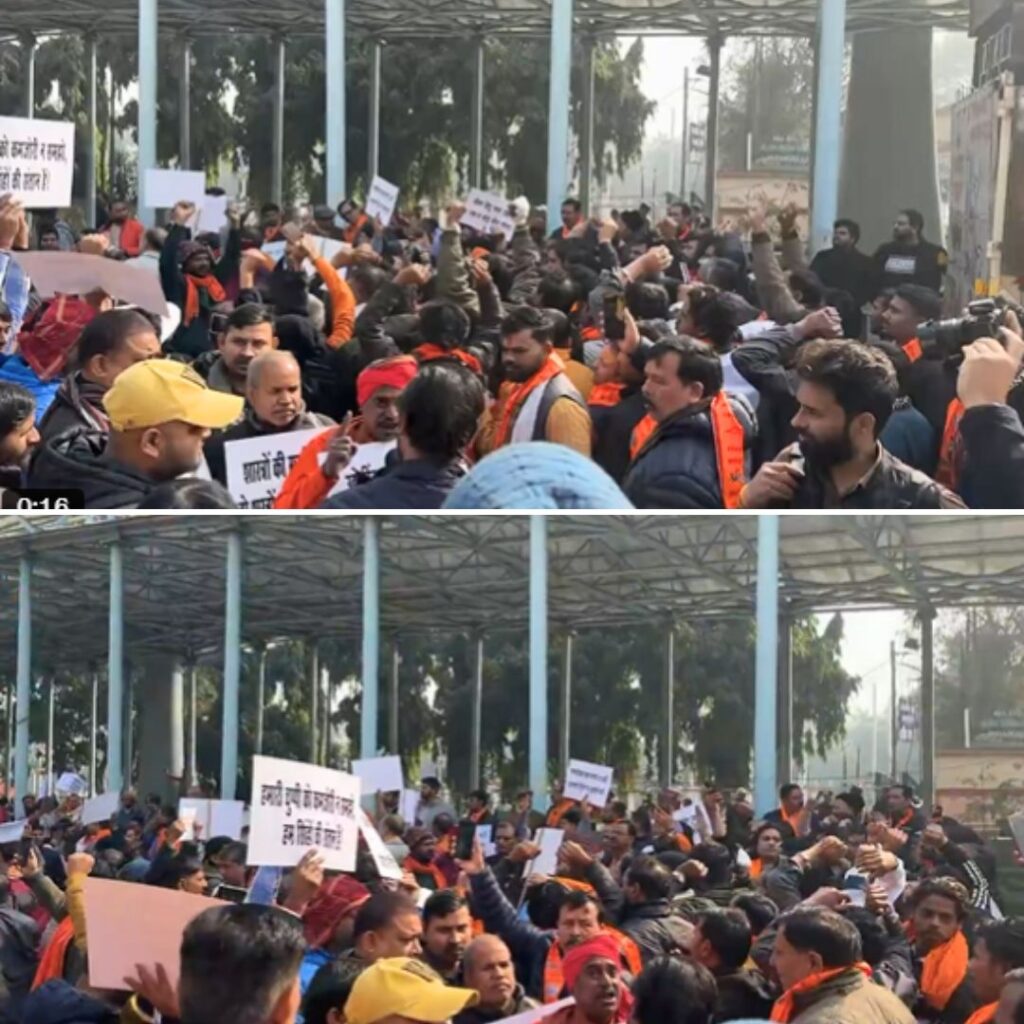Giridih district, lying in the Chotanagpur Plateau Division, bestowed with natural resources has been in news for many reasons including the severe left wing extremism in the district. It is also considered as an Aspirational District because of the poor developmental indices. The government administration in recent past has brought many transformative changes in the district with improved governance measures under the leadership of a dynamic IAS officer and Deputy Commissioner, Rahul Kumar Sinha and his team. The initiative on ‘improving access to cash through doorstep banking’ during the pandemic is inspiring.
No Cash!!! Imagining the Rural Life Crisis
With the outbreak of the COVID-19 pandemic, followed by the complete Lockdown, the civic life was devastated both in the urban and rural areas. Poor, old age and vulnerable households were among the worst hit. The district has a very poor banking coverage with only 155 bank branches catering to 25 Lakh plus population spread across 2,772 villages and 358 Gram Panchayats.
For meeting the daily needs, people were not able to withdraw money from the banks as the banks were opening for a limited time, maintaining social distance was a challenge and moreover, unavailability of public transport has made the far-flung rural areas inaccessible to banking. Most vulnerable people like old age pensioners, widows, people with special needs etc were facing the brunt, as it was extremely difficult to travel to banks and withdraw cash. Further, people having money in their account were unable to withdraw it.
To reduce the misery, Prime Minister launched the PM Garib Kalyan Yojana and through DBT, financial assistance was credited to the bank account of beneficiaries of PM Jan Dhan Yojana, PM-KISAN, NSAP etc. In addition to this, wage payments of MGNREGS, subsidy for PM Ujjala etc were also transferred through DBT. No Cash at hand has increased the difficulty of households to pay for their day to day consumptions.
Improved access to Finance by ‘Bank at your doorstep’, ‘बैंक आपके द्वार’ initiative
To ensure that cash is available in the rural areas, the Deputy Commissioner started an initiative named ‘Bank at your doorstep’, where the Banking Correspondents played a crucial role in implementing the initiative. In the beginning, a three members team consisting of the Lead Bank Manager (LDM) Ravindra Kumar Sinha and Aspirational District fellows, Pankaj and Satyaki did rigorous field visit to understand the ground challenges.
The team found that controlling rumours and fake news on the distribution of cash is the major challenge in addition to the problem of access to cash. Rumours had spread that if the amount provided under PM Garib Kalyan Yojana is not withdrawn immediately, then the government will pull back the money and give it to others in need. To cite an example, the rumour for PM UJJWALA scheme was that, a beneficiary is eligible for the second subsidy only after the full utilization of the first subsidy. Rumours and fake news created panic among women Jandhan Account Holders and other scheme beneficiaries. This led to a huge rush in banks despite the lockdown.
The Aspirational District Fellows and the District Administration officials designed awareness materials and ran an IEC drive in collaboration with Panchayati Raj Institution Members and SHGs. Audiovisual means were used to spread awareness.
To reduce the rush and maintaining crowd, the district followed two major steps.
The Brick and Mortar bank Branches were operated and time slot for different age group people was followed. Children, elderly, widows and specially-abled were asked to visit banks in the morning hours while younger people were asked to visit the banks in the afternoon.
Banking correspondents (BC)/Banking facilitators (BFs) are placed in Grahak Seva Kendras at every 5 Kms. BCs/BFs acted like mini banks where Aadhaar enabled account holders were paid cash on demand. The beneficiary’s biometric details were entered and the BC would record the transaction details and pay the cash to the beneficiary.
For ensuring social distancing, the queue in banks was earmarked with circles and for older people, chairs were provided so that they can sit and wait in the queue. Women pavilion shelters were also provided.
Provision of shades outside the Bank of India, Mahesmunda branch
The Deputy Commissioner also instructed to place water bell in the banks. The hot summer is unbearable and water bell rang at the interval of every hour reminding the employees of the bank to provide water to everyone standing in the queues outside the banks. To reduce the rush, a token system was also used. As some people rushed to the banks to check for the account balance, a helpline calling system was put in place to update the beneficiaries on account balances.
LDM Offering water to people in the queue
While the banks operated in their buildings, the Banking Correspondents provided cash to beneficiaries at the Grahak Seva Kendras. BCs …












